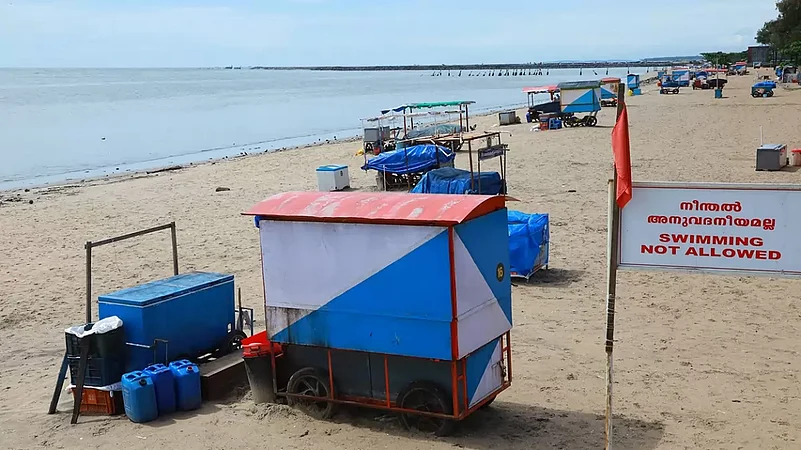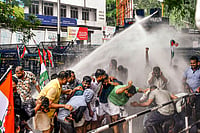No new Nipah positive cases were reported in the state since September 16 with 61 more samples of persons who were in the high risk contact list turning up negative for the virus, Kerala government said on Monday.
State Health Minister Veena George told reporters that results of the genomic sequencing, to confirm there was no second wave of the virus outbreak, would be available by evening or tomorrow.
Meanwhile, the Central teams were in the field and surveying all the relevant locations, the minister said.
"One of the teams might go back today," she added.
The last Nipah positive case reported in the state was on September 15.
The minister on Sunday had said that the situation was under control presently.
George had also said the four infected persons, including a nine-year-old boy, were getting better and the child has been taken off ventilator for the time being.
She had also said that samples from 36 bats have been taken and sent to the National Institute of Virology (NIV) in Pune to ascertain the presence of the virus among the mammals.
George further said that since all the infected persons got the virus from the same person -- the index case -- who died on August 30, it was clear that there was no second wave and that it was welcome news.
"It can also be proved through genomic sequencing which is being carried out," she had said.
Till Sunday evening, 1,233 contacts had been traced and of them 352 were in the high-risk category, she had said.
The minister had further said that as no new positive Nipah cases were being reported, the containment and quarantine measures would remain in place for 42 days from the last positive case reported.
The incubation period of the virus is 21 days and therefore, "a double incubation period of 42 days from the last positive case" is considered as the period during which caution has to be exercised, George had explained.
The total number of cases of Nipah infection confirmed in the state are six, of which two persons have died and four people are being treated.
The World Health Organisation and ICMR studies have found that the entire state, not just Kozhikode, is prone to such infections.


























